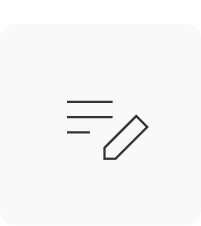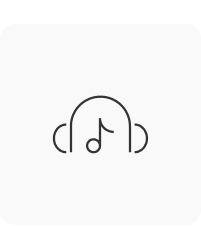"Take Your First Step into Korean Learning!"
Main topics of the Level 1 course:
- Basic greetings
- How to count numbers in Korean
- Basic grammar for forming your first Korean sentences
- Present and past tense
- How to say "who", "why", and "how" in Korean
Table of Contents
![]() Average lesson length: 13 minutes
Average lesson length: 13 minutes
Lesson 1. Hello. Thank you. / 안녕하세요. 감사합니다.
Lesson 2. Yes. No. What? / 네. 아니요. 네?
Lesson 3. Good-bye. See you. / 안녕히 가세요. 안녕히 계세요. 안녕.
Lesson 4. I’m sorry. Excuse me. / 죄송합니다. 저기요.
Lesson 5. It’s me. What is it? / 저예요. 뭐예요?
Lesson 6. What is this? This is … / 이거 뭐예요? 이거…
Lesson 7. This, That, It / 이, 그, 저
Lesson 8. It’s NOT me. / 아니에요.
Lesson 9. Particles for Topic and Subject / 은, 는, 이, 가
Lesson 10. have, don’t have, there is, there isn’t / 있어요, 없어요
Lesson 11. Please give me. / 주세요.
Lesson 12. It’s delicious. Thank you for the food. / 맛있어요. 잘 먹겠습니다. 잘 먹었습니다.
Lesson 13. I want to … / -고 싶어요
Lesson 14. What do you want to do? / 뭐 하고 싶어요?
Lesson 15. Sino-Korean Numbers / 일, 이, 삼, 사
Lesson 16. Basic Present Tense / -아요, -어요, -여요
Lesson 17. Past Tense / -았/었/였어요 (했어요)
Lesson 18. Particles for Location / 에, 에서
Lesson 19. When / 언제
Lesson 20. Native Korean numbers / 하나, 둘, 셋, 넷
Lesson 21. Negative Sentences / 안, -지 않다
Lesson 22. 하다 verbs
Lesson 23. Who? / 누구?
Lesson 24. Why? How? / 왜? 어떻게?
Lesson 25. From A To B, From C Until D / -에서/부터 -까지
Review What You’ve Learned in Level 1
Why you'll LOVE our Essential Korean Curriculum
All Levels Covered Short and Digestible Lessons Fun Story-based Reviews Review Quizzes and Interactive Audio Lessons
By simply following our curriculum that covers 10 levels, you can take your Korean skills from absolute beginner all the way up to advanced.
Each lesson is bite-sized and easy to understand, as it focuses on one grammar point at a time and provides many example sentences.
You can review the entire course through a fun story! The final lesson of each course features a fun story that allows you to review all the grammar and vocabulary introduced in the course.
You can test your new knowledge through review quizzes and interactive audio lessons, where our teachers ask you questions, and you can respond and check where you need to improve.
Who teaches this course?


What you can find in this course:

Lesson notes

MP3 file

PDF file

Sample dialogues

Sample dialogues

Review lesson
[Updated] Learn to Read and Write in Korean (Hangeul)![]()
#Hangeul #KoreanLetters #AbsoluteBeginners
How Korean Sentences Work![]()
#KoreanSentences #Grammar #Beginner
30 Essential Korean Adjectives For Beginners![]()
#KoreanAdjectives #Vocabulary #Beginner
20 Essential Korean Phrases For Beginners![]()
#KoreanPhrases #Speaking #Beginner
Level 1 Textbook ![]()
Level 1 Workbook ![]()
Level 1 Textbook & Workbook Package ![]()
More courses & books you might also like
[Updated] Learn to Read and Write in Korean (Hangeul)![]()
#Hangeul #KoreanLetters #AbsoluteBeginners
How Korean Sentences Work![]()
#KoreanSentences #Grammar #Beginner
30 Essential Korean Adjectives For Beginners![]()
#KoreanAdjectives #Vocabulary #Beginner
20 Essential Korean Phrases For Beginners![]()
#KoreanPhrases #Speaking #Beginner
Level 1 Textbook ![]()
Level 1 Workbook ![]()
Level 1 Textbook & Workbook Package ![]()






If anyone is interested to me my study buddy you can add me on insta : nitidhungel
I’ll add you too!
I can help be your study buddy if you want!
I’m studying Korean right now because I met my Korean boyfriend’s parents few months ago and we barely had conversations because of our language barriers! Studying to speak with my boyfriend and his family. Spending this quarantine time to up-level my skills lol
파이팅! 🤞
I am Nan Yi and I am currently on my level 2 🙂
pls add me on instagram: cheahnanyi
so that we can study and work through the process together!
Hey there! I’ll add you on insta if you’re alright with that 🙂
Will i get notifications if there’s someone reply to my post?
No unfortunately I didn’t get any when someone replied to my post
did you now?
I don’t get the notifications :’)
im not fluent in korean am doing my best to study and catch up anyone interested lets be study buddies
you can add me on insta-(maggie_m)
or if you have kakaotalk you can add me( nnabiii11)
i am currently doing review on level 2 im going to start level 2 tommorrow
i tried to search u on insta but didnt find u :(( i’d really like to be study buddies tho
I will add you 🙂
Hey ! I have a question about lesson 18: If I want to say “i am good at drawing” should it be :저는 그림을 잘 해요 or
저는 그림을 잘 그려요. Because for me the first one sounds way better. This sentence got me really frustrated.
I can see why you can get frustrated here. As English has matching or pairing words, so does the Korean. We can name this collocation. So as picture goes with verbs like paint/sketch/draw, 그림 goes with 그리다. If you were to say 그림을 잘해요 sounds awkward because it would translate to ‘I do well in draw’. Hope this helps 😉
In lesson 5 quiz. All I heard I understood was “From Monday to Sunday.” Am I right?
월요부터 일요까지 레요 (this was all I heard)
Correct me if I’m wrong. Thank you.
월요일부터 일요일 저녁 까지 일해요 (i work from monday to sunday evening)
Cmiiw
월요일부터일요일 ,, 나도생각….친구
Woah. 여기 친구없어요. 감사함니다!
안녕하세요 여러분, 저는 Kerrie 입니다. I have been studying Korean for a while now, and I’m currently studying level 2, lesson 28 of TTMIK’s curriculums. Please add me on Instagram and be my study buddy, as I wish to speak fluent Korean someday, but I’m struggling with my pronunciation. My Instagram acc: kl_chaewon_95 🙂
Hi there, I wanna connect to u on Instagram and be your fellow Korean learner. My IG is meizemini, followed u.
Hi there, sure we can study Korean together, let’s communicate on IG.
Im you Sant to be my study Buddy add me on insta :melina.11o10
The question from lesson 9 was :
한국 친구 몇명 있어요?
My answer is:
한국 친구 없어요.🙁
Here! 🙋🏻♀️
Hi hi just a fellow student here, but I believe the proper written sentence to the given answer should be
N 이/가 없어요
and therefore the answer should be:
한국 친구가 없어요.
Thanks for correcting me. 감사합니다 !
Hi, regarding level 2 lesson 10 I do not quite understand why the correct answer for “경은 씨는 사무실에서 열심히 일하고 있어요. 그런데 현우 씨는 _________” is “일하고 있어요”. There should be something contrasting the first sentence, but the option suggested does not make the contrast?
Could you let us know which part you are talking about? 🙂
Hi, it’s regarding the quiz for the lesson. Question number 7.
Hello, I have a question, why can you write the verb like this: ‘대학생은 책상에서 공부를 하고 있었어’ and also like this :대학생은 책상에서 공부하고 있었어’ with the 하다 verbs (same in another tenses)? And if you use the first form, can you add an object with the particle 를/을, like :’대학생은 책상에서 문법을 공부를 하고 있었어’
Helooo, my insta is @andrew.nuwin, feel free to add me if u wanna be my study buddy. See ya!!!
i already finished level 2 and i am so exited to start level 3. If someone need a partner to reviews with please send me that’s my instagram @fatimaoulfassi don’t be shy <3
Yay… finally I finished level 2. Thank you TTMIK Team… and also for the certificate:) it motivates me to keep studying now, it’s a great idea.
I just finished Level 2 lessons tonight! Big THANK YOU to TTMIK for creating such a great learning website! It’s so fun to learn Korean with it. TTMIK으로* 공부하면, 재미있어요. and it’s so TRUE. Thank you again. : )
Helloooo I’m starting level 2 today if anyone would like to study w/ me my intsa username is 22juju_
Hii I’m on level 2 lesson 13, if someone want to study with me my instagram user is isa._.garcia_ pls send me a message 🙂
Hi Kathy. Can we be study buddies. I’ve sent u a DM from @phunmzy17
i didn’t receive ur message …
hi
can you help me?
yes, ig i can try…
for lesson 22 im still unsure on the difference for 좋아요 and 좋아해요 I understand that 좋아요 is a descriptive verb and cant be used when talking about other people and that when it is put with 가 it states that what is being liked is the subject but I don’t understand why this sentence 뭐가 제일 좋아요? what is your favourite? is fine to use even though it is asking someone else and is that sentence the same as 뭐를 제일 좋아해요? What do you like best? even though in the second sentence the fact that you like ____ is the subject
I know it’s pretty tricky.
When something sounds good and you like it, you say 좋아요. ex) I like him (He is a nice person)
When you like something actively and you are fond of it, you say 좋아해요. ex) I like him (I like him in a romantic way)
Hi. I very much enjoyed the level 2 lessons. I find the style of teaching easy to understand. In the final lesson I understood 90%+ of the written sample. Unfortunately I only understood around 5-10% of the spoken conversation 😔. It’s too fast for me to make out. Any tips on improving my ability to understand spoken Korean other than these lessons and watching Kdrama (which I do a lot of already)? I can’t get to classes, or to Korea, yet.
It’s totally normal. Don’t be too frustrated!
It will go up gradually from 10% to 11% and from 11% to 12%.
same here, i was researching this and it turns out we need to listen to it repeatedly, like maybe some 50 times in order for our brains to start catching all the words, it is a normal process, like when we first started to learn our native language. its called repetitive listening, look it up and it might help, i am doing that with the last dialogue
Thank you for your great advice!
Hi,
In lesson 10, the given example 궁부하고 있어요 usually people say 궁부해요. May I know this form apply to all present progressive. Can I say 일해요 instead of 일하고 있어요, 듣해요 instead of 듣하고 있어요.
궁부 -> 공부
듣해요(X) 들어요(O) 듣고 있어요(O)
You can say 일해요 and 들어요 too!
감사합니다
Hello! The answer for the quiz of level 2, lesson 12 is: 제 생일은 6월 12일이에요. Thank you ttmik team for the amazing classes!
Hello! Here is the answer of the quiz of lesson 10: 저는 어제 잭을 읽고 있었어요. 🙂
안녕하세요 team ttmik!
So i started level 2 today and I noticed something in the first lesson while conjugating verb 하다 in the future tense it was 하+ㄹ거예요 and the “예” became 에 :할거에요.
Can you please tell if it’s right or wrong because I think we should add ㄹ거예요 without changing nothing.
안녕하세요! I need a little clarification about when to use 는 것 as spoken about in level 2 lesson 19. So, roughly ‘나는 수영하는 것을 좋아한다’ is translated to I like to swim instead of I like swimming? Since I’m guessing that 수영하는 것 means ‘to swim’. Same goes with ‘저는 먹는 것을 좋아합니다’ which should roughly translate to ‘I like to eat’, right? I’m a little confused since it’s translated to ‘I like swimming’ or ‘I like eating’
I always thought of 는 것 as like adding ing on the end of a verb in English as 수영하는 것 is the act of swimming, swimming. if you was to say to swim it would just be 수영하다. so 나는 수영하는 것을 좋아한다 is I like swimming. for 저는 먹는 것을 좋아합니다 its also the same as 먹는 것 is the act of eating, eating, the thing you eat, what you eat so again that sentence would translate to I like eating which in English is technically the same as I like to eat or I like to swim. hope this helped.